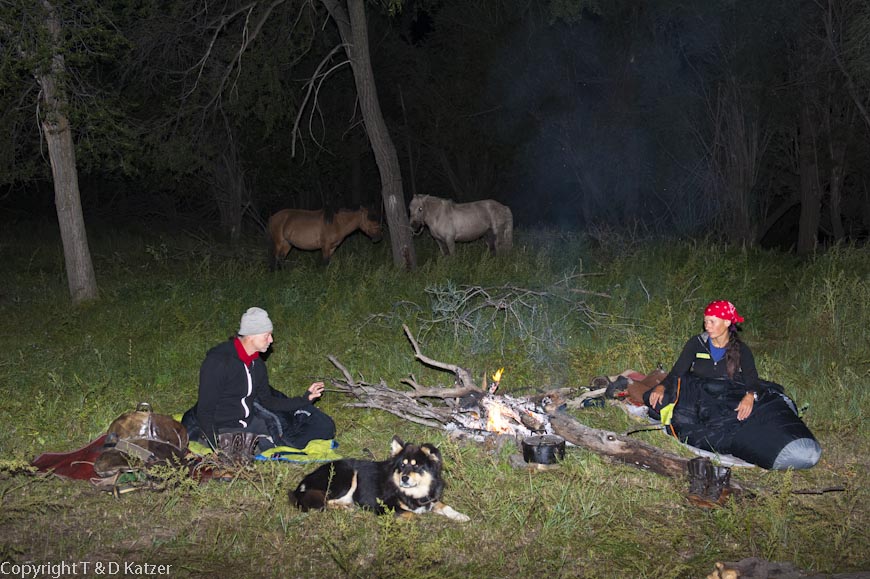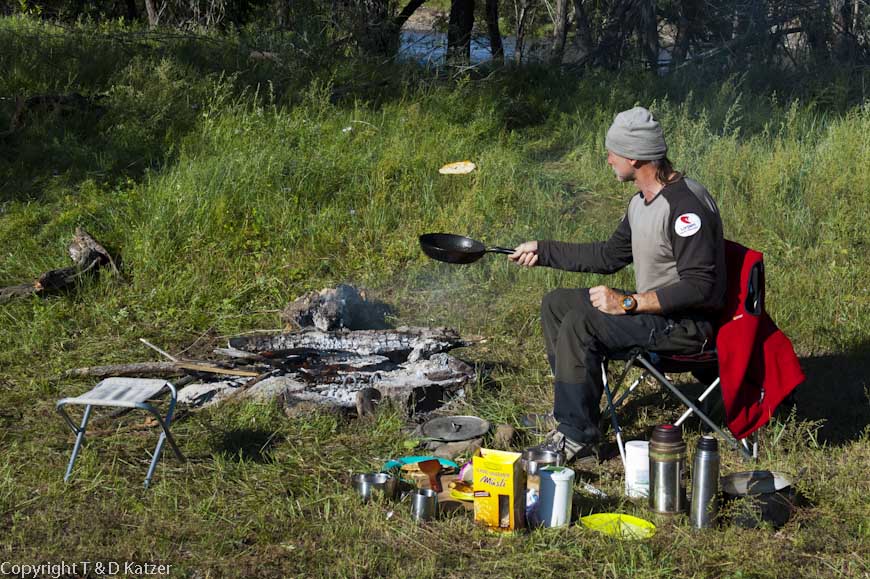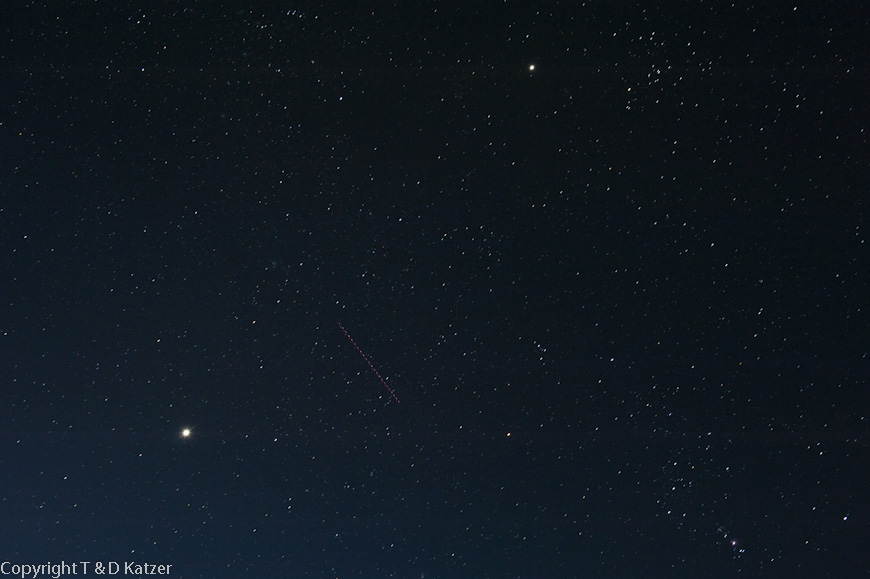
Dream camp on the Selenge River
N 49°22'220'' E 101°07'482''
Day: 390-394
Sunrise:
06:10/06:15
Sunset:
20:28/2021
Total kilometers:
2187
Soil condition:
Grass
Temperature – Day (maximum):
18°C/30 °C
Temperature – day (minimum):
10 °C/14 °C
Temperature – Night:
minus 2 °C/12 °C
Latitude:
49°22’220”
Longitude:
101°07’482”
Maximum height:
1099 m above sea level






The rattling of the canvas tent startles me. Heavy rain is lashing down. I immediately look into the awning. Tanja is lying on a sheet. Water has already pooled on it to form a rapidly growing puddle. Her sleeping bag, two thirds of which is in the awning and one third under the canopy, is soaking wet. “Tanja! Oh, Tanja!” Yes?” she startles. “You’re getting soaking wet! We have to quickly fold down the canopy and close the tent!” I shout, whereupon we both spring into action. “Here, take this cloth and wipe your sleeping bag dry,” I say and hand her the cloth. “Didn’t you feel the rain?” I ask after the chaos in the awning has been brought under control. “No, I’m not conditioned to rain, I’m conditioned to Mogi’s barking, neighing, squealing and screaming.” “Well, anyone who can ignore weather like that must have a damn good night’s sleep. It’s a good thing your sleeping bag isn’t completely wet,” I reply. “Hopefully the Selenge won’t burst its banks and wash us away,” says Tanja. “It would have to rise another meter. I don’t think that will happen. But we should still keep an eye on its level,” I reply, lying down again and listening to the loud roar of the river and the rain drumming on the canvas.
For five days now we have been on this wonderful piece of earth which we call our hidden clearing. On the eastern side, the still raging Selenge flows past. To the west and north, our camp site is bordered by a steeply sloping rock formation and to the south there is a wall of bushes and trees. In the middle is the most wonderful grass on which our ever fatter mounts feast until they settle down with a groan and stretch their bellies into the sun. Only those who know the place, or who stumble upon it by chance as we did, know what a gem of nature is hidden here. As there is no comparable camp site on the rest of the route, we enjoy the peaceful time here to the full.
The weather is very changeable and rainy during the first few days. For the past two days, the sun has been back in control and the mercury has risen to 32 °C in the shade. At night, the thermometer already drops to minus 2 °C, even though we are only at an altitude of 1,100 meters. Since one can assume a temperature difference of one degree for every 100 meters of altitude difference, the night-time temperatures in the taiga have probably dropped to just under minus 10 °C by now. This is difficult to accept in mid-August, but summer is already over in this country in August.
The two shepherds Batuluk and Basangjau, the only inhabitants of the log cabin Tanja saw on the day of her arrival, visit us almost every day. The yurts are empty. Father and son explain that they are only here for a few days to cut hay for the winter with their scythes. “We can remember you. Bilgee is a distant relative of ours,” says Batuluk. “How small the world is,” I wonder. “This is for you. We only caught the fish this morning,” says Basangjau, takes a plastic bag out of his Deel and hands it to Tanja. “Oh delicious, these are khushuur”, (dumplings, in this case filled with fish) she enthuses. To the delight of our visitors, we eat the freshly prepared, still warm khushuuur in front of them. Again, nice people who leave us alone after their short visit to go about their work.
Even though we and the horses could easily stay in our dream clearing for another week or two, we want to move on tomorrow. We use the afternoon, which is still 30°C, to pack some of our equipment. Due to the food consumed, the weight ratio of the bags has shifted and must therefore be reorganized for the most part. The saddles now all fit. Cutting out the felt pads from Bor’s saddle was also successful. Mogi’s bite wound seems to have healed. At least he no longer limps. This means that every member of the expedition is doing really well at the moment.
We look forward to your comments!

